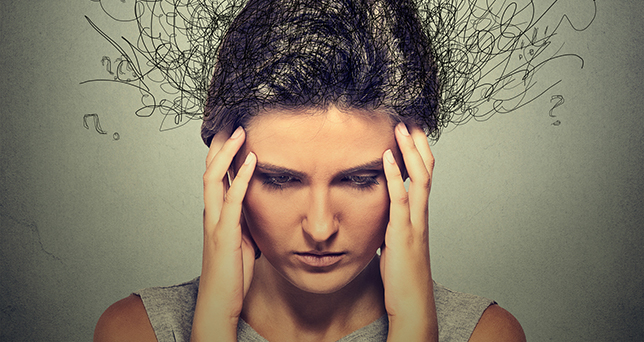
5 Things You Can Do About Social Media & Teen Mental Health
In our Featured Article: Social Media & Teen Mental Health, we discuss how shaming, cyberbullying, body image, and feeling excluded or “missing out” can lead to lowered mental health for teens.
Here are five things that you can do to help yourself and others regarding social media and mental health.
- First, consider yourself. Make sure you occasionally step back and consider the nature of your relationship with social media. Does social feedback on sites like Instagram of Snapchat hurt your self confidence? Do you find that your comparison with others is leading to poor self-image? Does the thought of disconnecting from social media–even for a moment–make you feel anxious?
- Now, consider others. Are you using social media in a way that doesn’t hurt other people? Have most of your interactions with others online been positive and strengthening to the relationship?
- Be true to you. Always remember that you have no obligation to look like anyone else, act like anyone else, or have as many followers as anyone. Make sure you are enjoying social media and take care not to succumb to common pitfalls. Don’t feel that you need to present a perfect image online to prove your self-worth.
- Balance your time. If you know that you are using social media for way too much time and that it’s affecting your productivity or mental health, remember that you are the one who can make a change! Put down the device. Find other ways to occupy your time. Consider deleting social media apps from your phone. You will still be able to access your accounts from the computer or other devices, but it is a great first step to reducing time spent on them. Also, check out these apps that can help you use your phone less: 6 Apps to Stop Your Smartphone Addiction
- Talk to someone. If you are ever feeling down and need someone to talk to, try using these free, confidential hotlines that are in service 24/7:
Youth Crisis Hotline: 1-800-448-4663
Suicide Prevention Hotline: 1-800-827-7571
Special Message from the iDrive Editor
Social media can intensify the awareness that we don’t measure up to the standards thrown at us online, giving rise an inner voice of shame that says, “You are not attractive enough, cool enough, strong enough, popular enough, or smart enough. You don’t wear the right clothes. You don’t have the right friends. You don’t say the right things. You don’t measure up.” Teens that allow the unrealistic standards and feedback from social networks to influence their self-worth are listening to the digitized voices of disinhibited social media contacts and unknown others. The fact is that we do not have to allow a digital society to drown out our own inner voice and shape a negative self-concept. On the contrary, we can find our own true worth. What is more, we can use social media to unite our voices in encouraging our friends and social media contacts to develop a healthy self-concept through positive self-talk and acceptance. Together, we can say “enough” to the online shaming and remind teens everywhere that they are “enough.”
How will use social media to counter online shaming and, instead, spread positive messages that inspires healthy self-talk?
Follow iDrive on Facebook, Twitter and Instagram.
See also –> How to Be a Social Media Champion
October is Cyber Bullying Awareness and Prevention Month! iDrive Agents everywhere used the power of social media to participate in the #PartofUs campaign during Teen Suicide Prevention Week in September. Since cyber bullying has a strong impact on teen mental health, let’s keep the momentum going in October! Learn more about October Happenings from the iDrive Student Advisory Board.
iDrive wants to hear from you!
Want to start your own iDrive campaign or have a topic that you want iDrive to address? Send us a direct message on social media or send an e-mail at advisoryboard@isafe.org
Want to contribute social media content to future iDrive campaigns? Submit your application to join the iDrive Student Advisory Board here
Are you reading this article, but you’re not yet an iDrive Agent? Sign up here
Related Stories:
- Featured Article: Social Media & Teen Mental Health
- iDrive Student Advisory Board: Teen Suicide Prevention Week 9/10-16
- iDrive Student Advisory Board: October Happenings
- iDrive Agents: 7 Tips to Write for the Web
References:
“2016 Cyberbullying Data.” Cyberbullying Research Center. N.p., 15 Sept. 2017. Web.
Costello, Caitlin, and Danielle Ramo. “Social Media and Substance Use: What Should We Be Recommending to Teens and Their Parents?” Journal of Adolescent Health. Society for Adolescent Health and Medicine, n.d. Web. Retrieved from: https://cyberbullying.org/2016-cyberbullying-data
“Cyberbullying Rampant on the Internet.” CyberBully Hotline. SchoolMessenger, n.d. Web. Retrieved from: http://www.cyberbullyhotline.com/07-10-12-scourge.html
Goldman, Jeremy. “6 Apps to Stop Your Smartphone Addiction.” Inc.com. Inc., n.d. Web. Retrieved from: https://www.inc.com/jeremy-goldman/6-apps-to-stop-your-smartphone-addiction.html
“How Social Media Effects Teenagers’ Mental Health | NorthShore.” North Shore. N.p., 25 Sept. 2017. Web. Retrieved from: https://www.northshore.org/healthy-you/how-social-media-effects-teenagers-mental-health/
Itzkoff, Dave. “Comedy Central Stands Behind Trevor Noah, New ‘Daily Show’ Host, Amid Scrutiny.” The New York Times. The New York Times, 31 Mar. 2015. Web. Retreived from: https://www.nytimes.com/2015/04/01/arts/television/trevor-noah-new-daily-show-host-comes-under-scrutiny-for-tweets.html
Lenhart, Amanda. “Teens, Technology and Friendships.” Pew Research Center: Internet, Science & Tech. Pew Research Center, 06 Aug. 2015. Web. Retrieved from: http://www.pewinternet.org/2015/08/06/teens-technology-and-friendships/
Macmillan, Amanda. “Why Instagram Is the Worst Social Media for Mental Health.” Time. Time, 25 May 2017. Web. Retrieved from: http://time.com/4793331/instagram-social-media-mental-health/
Miller, Korin. “The Shocking Results of Yahoo Health’s Body-Positivity Survey.” Yahoo! Yahoo!, 04 Jan. 2016. Web. Retreived from: https://www.yahoo.com/lifestyle/the-shocking-results-of-yahoo-1332510105509942.html
“Our Latest Research on Cyberbullying among School Students.” Cyberbullying Research Center. Cyberbullying Research Center, 21 Oct. 2015. Web. Retrieved from: https://cyberbullying.org/2015-data
Sampasa-Kanyinga Hugues and Lewis Rosamund F.. Cyberpsychology, Behavior, and Social Networking. July 2015, 18(7): 380-385. Web. Retrieved from: https://doi.org/10.1089/cyber.2015.0055
Sapadin, Linda. “Fear of Missing Out.” World of Psychology. Psych Central, 05 Oct. 2015. Web. Retrieved from: https://psychcentral.com/blog/archives/2015/10/12/fear-of-missing-out/
Taylor and Francis. “One in Five Young People Lose Sleep over Social Media.” ScienceDaily. ScienceDaily, 16 Jan. 2017. Web. Retrieved from: https://www.sciencedaily.com/releases/2017/01/170116091419.htm
Twenge, Jean M. “Have Smartphones Destroyed a Generation?” The Atlantic. Atlantic Media Company, 04 Aug. 2017. Web. Retrieved from: https://www.theatlantic.com/magazine/archive/2017/09/has-the-smartphone-destroyed-a-generation/534198/













